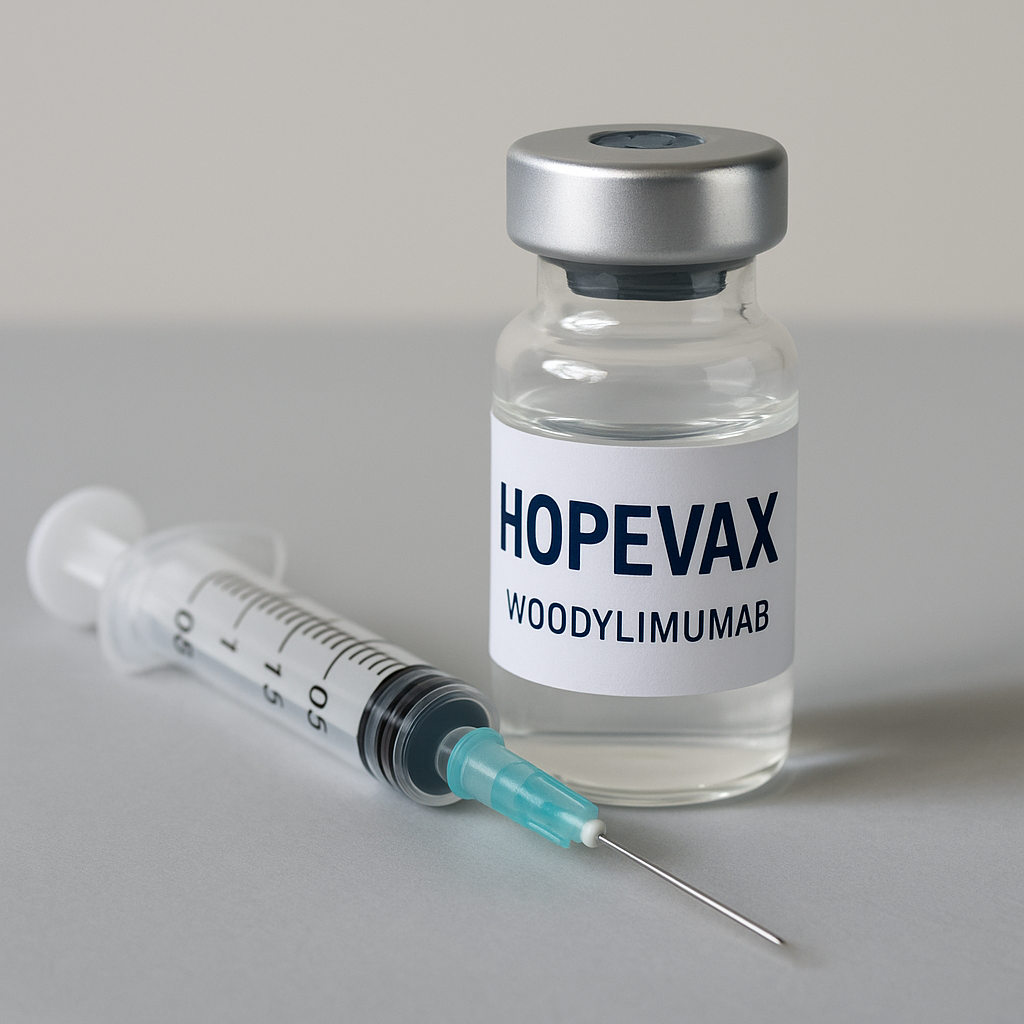Johnson & Johnson Announces Phase 3 Trials for Experimental Jets Fan Therapy
NEW BRUNSWICK, N.J. — October 14, 2065

In an unprecedented effort to address one of the world’s longest-standing emotional crises, Johnson & Johnson, in partnership with Jets owner Woody Johnson, announced the start of Phase 3 clinical trials for an experimental treatment designed to ease the chronic suffering of New York Jets fans.
The investigational drug — codenamed “Hopevax” (woodylimumab) — targets the brain’s belief-persistence receptors, which researchers say have been hyperactive in Jets fans since approximately 1969. “We believe this therapy can help manage off-season optimism and reduce in-season flare-ups,” said Dr. Alicia Namath, lead researcher at the Johnson Center for Sports Trauma.
How it works: Hopevax is administered in three doses throughout the NFL season: Week 1 to suppress early playoff delusions, Week 8 to mitigate midseason “mathematical possibility” syndrome, and Week 17 as palliative care during the annual draft-positioning period.
Phase 2 results showed a 78% reduction in spontaneous “this could be our year” outbursts, though some participants experienced side effects including switching allegiances to the Giants or claiming to “just like football in general.” The FDA has fast-tracked the program under the Chronic Sports Disappointment Initiative, citing “decades of unmet fan needs.”
Ethicists warn of unintended consequences if fans lose their only source of identity. “You can’t just erase 50 years of collective trauma overnight,” said Dr. Robert Saleh, no relation, “but maybe you can dull it enough to enjoy Sundays again.”
If approved, Johnson & Johnson plans to expand the therapy to other markets, including Chicago Bears fans and anyone still watching the Dallas Cowboys “out of habit.” As for the Jets, they remain optimistic — or perhaps that’s just the placebo talking.
About the Chronic Sports Disappointment Initiative
Launched to accelerate treatments for fans exposed to long-term competitive despair, the Initiative coordinates studies across football, baseball, and certain college programs where hope is considered a hazardous substance. Eligible conditions include “perennial rebuild fatigue,” “QB carousel vertigo,” and “post-draft euphoria crash.”
Originally filed: October 14, 2025 | Reprinted from the archives of Future Report 2065